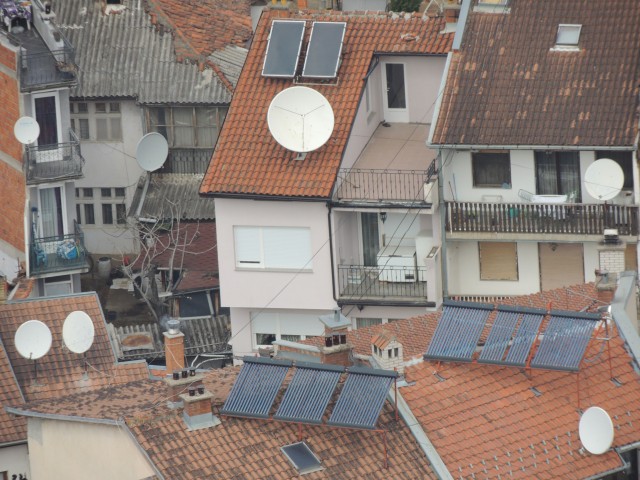NEWS Op Ed on Energy Pathways for Kosovo and Southeast Europe
The future of coal passes through Kosovo
Daniel M. Kammen and Noah Kittner
In 2013, the World Bank pledged to stop loaning money for new coal energy projects[1], unless no financially feasible alternatives exist. President Obama has said the same for the United States, “Today, I’m calling for an end of public financing for new coal plants overseas—unless they deploy carbon capture technologies, or there’s no other viable way for the poorest countries to generate electricity (President Obama, June 25, 2013)[2],[3].”
In Kosovo a proposed coal-fired power plant has been under discussion for over a decade. The prime funders, ironically, are the World Bank and the U. S. government.
The landscape of energy no longer favors coal. Renewable energy and energy efficiency technologies costs continue to plummet. The World Bank and the U. S. government’s decision to fund this project or not will set a critical precedent for the future of coal financing, making Kosovo the global gatekeeper for new coal projects.
In fact, coal has become an increasingly risky investment in terms of energy, climate, and health. In a recent analysis performed in conjunction with colleagues from the Balkans we have found[4] that the clean energy path is not only better for human and environmental health — it is simply less expensive.
The World Bank and the U.S government now have the opportunity and to set the international energy and climate investment agenda. Distributed renewable energy resources and energy efficiency are simply faster to deploy to meet local needs than the arduous process of building out new centralized coal facilities. Delay on adopting a clean energy policy for the region slows down not only the provision of critically needed energy resources that can spur economic growth, but also the larger process of EU integration, which is a regional priority.
The range of options available to the World Bank to replace an aging coal-fired power plant in Kosovo allows for technological innovation that avoids a one-size fits-all approach. Solar, wind, small-scale hydropower, biomass, and energy efficiency projects can all combine to form a reliable electricity mix and shift the conversation away from single-technology solutions. Not every site may be appropriate for solar, wind, small-scale hydropower or biomass, but winners can emerge based on local conditions. The highly adaptive nature of renewables and energy efficiency investments distributes capital investment risk instead of channeling all resources into coal projects.
New research on the hazards of particulate matter to human health and the environment from low-quality lignite coal intensifies the concern for the current generation of Kosovars. Pollution control technologies that claim “clean” coal are expensive patchwork investments that do not address problems of coal mining, climate change, or ash byproducts. A price on carbon hammers the nail in the coffin. World Bank President Jim Kim has already publicly advocated for the inclusion of a $30/ton carbon shadow price on all proposed World Bank projects. Therefore, it only makes sense that coal, the highest carbon-emitting electricity generation source per kilowatt-hour, becomes the most expensive option among the abundance of low-cost, low-carbon renewables including solar, wind, small-scale hydropower, biomass, and energy efficiency.
The World Bank and the US government face an historic choice and a chance to tip the energy and climate conversation. They can side with the emerging data and studies of clean energy economics to chart a reliable low-cost, and low-carbon pathway to renewable energy and green jobs. Failure to seize the moment would violate the prohibitions on coal projects that each institution has recently pledged. It is time to chart a sustainable path for people in need of energy now.
[1] World Bank. 2013. Toward a sustainable energy future for all: directions for the World Bank Group’s energy sector. Washington DC ; World Bank. http://documents.worldbank.org/curated/en/2013/07/18016002/toward-sustainable-energy-future-all-directions-world-bank-group’s‑energy-sector
[2] https://www.whitehouse.gov/the-press-office/2013/06/25/remarks-president-climate-change
[3] US Treasury. 2013. Guidance for U.S. Positions on MDBs Engaging with Developing Countries on Coal-Fired Power Generation. http://www.treasury.gov/resource-center/international/development-banks/Documents/CoalGuidance_2013.pdf
[4] http://rael.berkeley.edu/project/sustainable-energy-for-kosovo-and-southeast-europe/

You must be logged in to post a comment.